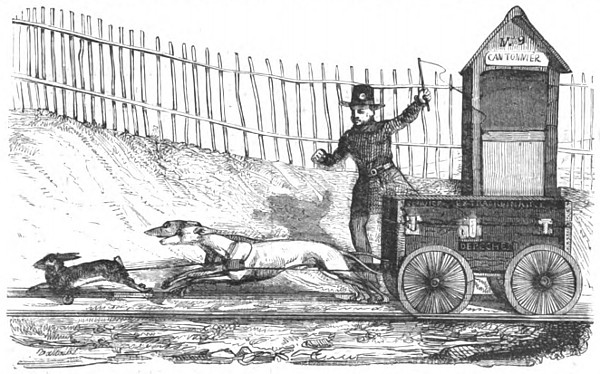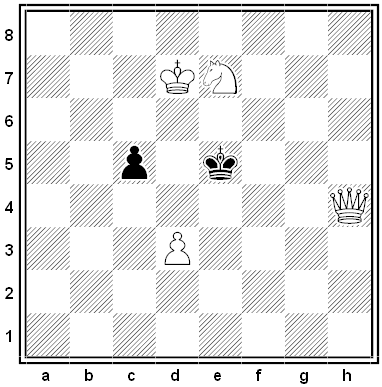
This drawing appeared in L’Illustration in May 1845 — it’s a “caniposte” railway that allegedly was used to carry express mail in Belgium. Two dogs are harnessed to a small wagon that runs on a narrow-gauge railway. They chase a stuffed hare, or, in “improved models,” a piece of raw meat.
Was this ever really used? “Despite evidence of the drawing, one has doubts!” writes J.R. Day in More Unusual Railways (1960). “Nevertheless the author has seen a large dog drawing a small cart in the streets of Salzburg, so perhaps it is not so unlikely after all.”
02/18/2016 UPDATE: A reader in Bruges tracked down the original story and offers some details:
Two ‘eccentric’ Brits apparently found associates for the construction of such a railway, meant for the transport of fresh fish from the seaport of Blankenberge to Bruges (some 12 km or 7.5 miles). The standard configuration would have been 4 hungry dogs, 2 barrels of fish and one piece of meat hung out in front; a different one (depicted) would consist of 2 hungry dogs, express mail and a motorized (‘dead or stuffed’) hare.
The railway was proposed but never actually built. ‘Some will consider it barbaric, other deem it impossible, and everyone will find it ridiculous; but people wil get used to it, and very soon one will wonder how we never thought of it any earlier.’
(Thanks, Karl.)






